Longlong Chen
Depth-Guided Bundle Sampling for Efficient Generalizable Neural Radiance Field Reconstruction
May 26, 2025Abstract:Recent advancements in generalizable novel view synthesis have achieved impressive quality through interpolation between nearby views. However, rendering high-resolution images remains computationally intensive due to the need for dense sampling of all rays. Recognizing that natural scenes are typically piecewise smooth and sampling all rays is often redundant, we propose a novel depth-guided bundle sampling strategy to accelerate rendering. By grouping adjacent rays into a bundle and sampling them collectively, a shared representation is generated for decoding all rays within the bundle. To further optimize efficiency, our adaptive sampling strategy dynamically allocates samples based on depth confidence, concentrating more samples in complex regions while reducing them in smoother areas. When applied to ENeRF, our method achieves up to a 1.27 dB PSNR improvement and a 47% increase in FPS on the DTU dataset. Extensive experiments on synthetic and real-world datasets demonstrate state-of-the-art rendering quality and up to 2x faster rendering compared to existing generalizable methods. Code is available at https://github.com/KLMAV-CUC/GDB-NeRF.
Double Graphs Regularized Multi-view Subspace Clustering
Sep 30, 2022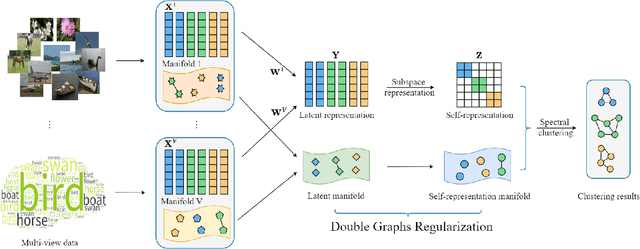
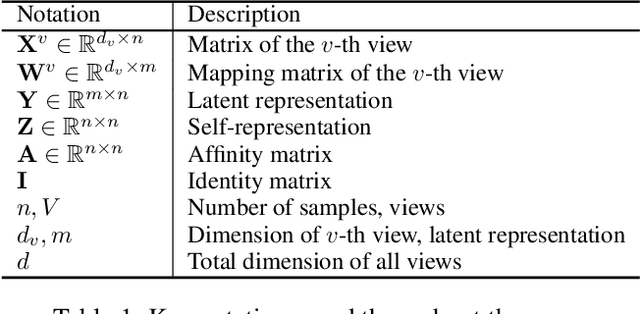
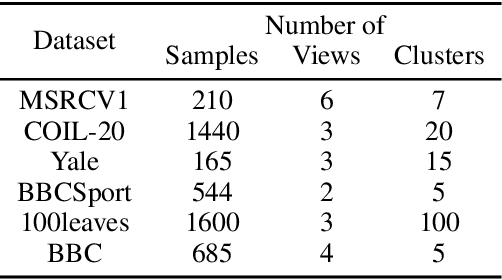
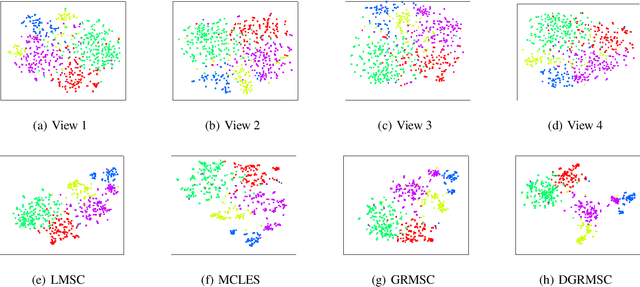
Abstract:Recent years have witnessed a growing academic interest in multi-view subspace clustering. In this paper, we propose a novel Double Graphs Regularized Multi-view Subspace Clustering (DGRMSC) method, which aims to harness both global and local structural information of multi-view data in a unified framework. Specifically, DGRMSC firstly learns a latent representation to exploit the global complementary information of multiple views. Based on the learned latent representation, we learn a self-representation to explore its global cluster structure. Further, Double Graphs Regularization (DGR) is performed on both latent representation and self-representation to take advantage of their local manifold structures simultaneously. Then, we design an iterative algorithm to solve the optimization problem effectively. Extensive experimental results on real-world datasets demonstrate the effectiveness of the proposed method.
Global Weighted Tensor Nuclear Norm for Tensor Robust Principal Component Analysis
Sep 28, 2022
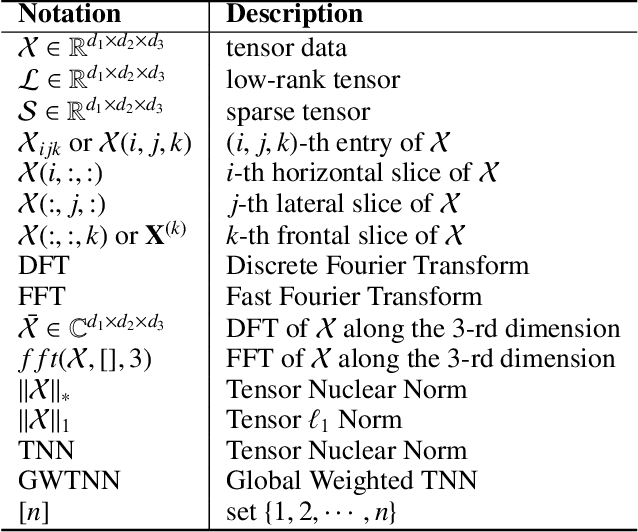
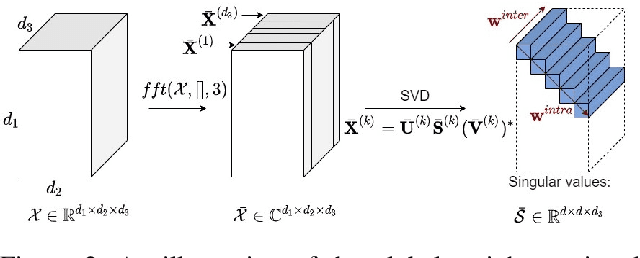

Abstract:Tensor Robust Principal Component Analysis (TRPCA), which aims to recover a low-rank tensor corrupted by sparse noise, has attracted much attention in many real applications. This paper develops a new Global Weighted TRPCA method (GWTRPCA), which is the first approach simultaneously considers the significance of intra-frontal slice and inter-frontal slice singular values in the Fourier domain. Exploiting this global information, GWTRPCA penalizes the larger singular values less and assigns smaller weights to them. Hence, our method can recover the low-tubal-rank components more exactly. Moreover, we propose an effective adaptive weight learning strategy by a Modified Cauchy Estimator (MCE) since the weight setting plays a crucial role in the success of GWTRPCA. To implement the GWTRPCA method, we devise an optimization algorithm using an Alternating Direction Method of Multipliers (ADMM) method. Experiments on real-world datasets validate the effectiveness of our proposed method.
 Add to Chrome
Add to Chrome Add to Firefox
Add to Firefox Add to Edge
Add to Edge